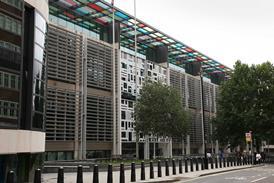The Law Society has welcomed the debate over libel law reform following publication of the government’s draft Defamation Bill today.
The bill, which is intended to bring libel law up-to-date, includes a new ‘public interest’ defence, and introduces the requirement for claimants to demonstrate ‘substantial harm’ before they can sue.
To reduce so-called ‘libel tourism’, it seeks to make it harder for people with little connection to the UK or the English courts to bring overseas claims.
The bill also introduces a single publication rule, meaning that repeat claims for libel cannot be made every time an internet publication is accessed.
The government said its proposals aim to strike a balance between protecting people’s right to speech that is free from unjustified libel actions, while enabling people who have been defamed to protect their reputations.
A consultation paper has been launched alongside the bill, which looks at other areas, including the role of the internet, and a new early-resolution procedure to cut the court costs associated with libel.
Justice Secretary Ken Clarke said: ‘The right to speak freely and debate issues without fear of censure is a vital cornerstone of a democratic society.
'In recent years though, the increased threat of costly libel actions has begun to have a chilling effect on scientific and academic debate, and investigative journalism.’
‘The government’s draft Defamation Bill will ensure that anyone who makes a statement of fact or expresses an honest opinion can do so with confidence,’ he said.
‘However, it is never acceptable to harm someone’s reputation without just cause, so the bill will ensure defamation law continues to balance the needs of both sides and encourage a just outcome in libel cases,’ added Clarke.
Are the proposals a worthwhile change - join the discussion on the Gazette'sLinkedIn pages.
Deputy Prime Minister Nick Clegg said: ‘For too long, our outdated libel laws have made it easy for the powerful and the wealthy to stifle fair criticism. We cannot continue to tolerate a culture in which scientists, journalists and bloggers are afraid to tackle issues of public importance for fear of being sued.’
‘These reforms will restore a sense of proportion to the law, upholding the importance of free speech while ensuring that people are able to defend themselves against unfair and untrue allegations,’ he said.
Law Society president Linda Lee said defamation law raised ‘profound questions’ about the balance between reputation and the right to free speech, and the Society is keen that debate over the bill properly considers all the competing interests.
‘It's therefore vital that we ensure that the often competing values of freedom of expression and the right of ordinary people to protect themselves against powerful interests seeking to unfairly besmirch their reputation, are both fully considered,’ said Lee.
She added: ‘It's also important that people should be able to obtain access to justice and gain redress when their right to reputation has been unfairly undermined, and the costs system needs to reflect this.’ The consultation closes on 10 June 2011 and can be found here



























No comments yet